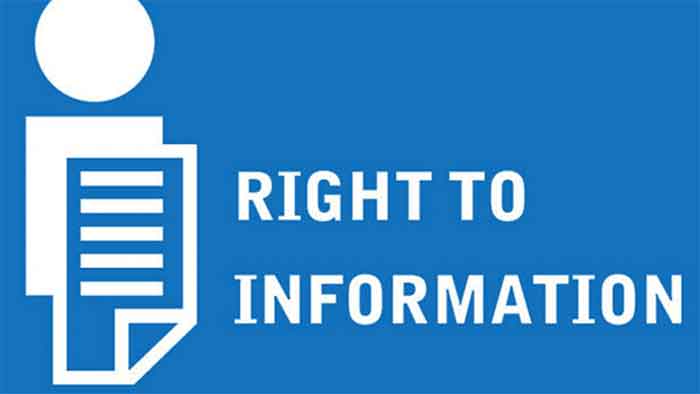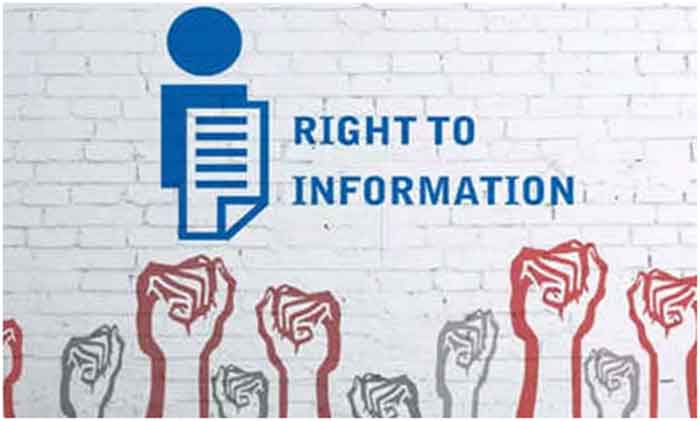Co-Written by Achintya Anita Gurumurthy and Nakul Patwardhan

This month marks fifteen years since the Right to Information (RTI) Act came into force. Born out of people’s movements for accountability, the RTI legislation acts as an important cornerstone in institutionalising the everyday practices of participatory democracy. By establishing the institutional mechanisms to ensure systemic transparency, the RTI is an important litmus test in discerning the extent of systemic opacity. After the amendment of the RTI Act in 2019, the Legal Aid Clinic at Jindal Global Law School spoke to Anjali Bharadwaj, Nikhil Dey, and Rakshita Swamy, the doyens of the RTI struggle in India. Many of their reflections and predictions ring increasingly true in the present context, as institutional autonomy and answerability are rapidly getting eroded. At this 15th year milestone of the RTI, we examine the bureaucratic and substantive alterations to the law, revisiting the commentaries of these leading social activists. We conclude that the amendment has resulted in the suppression of governmental transparency, ushering a secrecy Raj akin to colonial rule.
Autonomy of public institutions
Even prior to the 2019 amendment of the RTI Act, India was witness to a consistent erosion of institutional autonomy. For instance, in January 2019, four Supreme Court judges took to the media to report the dangerously dwindling independence of the judiciary on matters pertaining to several important matters, including Judge Loya’s case. The tussle between the RBI and the central government during demonetisation also demonstrates the complete disregard for systemic autonomy.
Talking to us, Nikhil Dey pointed out that “independent institutions in India have been under severe pressure”. This open display of political interference was blatantly evident when Amit Shah was invited to the 14th annual convention of the Central Information Commission (CIC) as chief guest. This, as Dey highlights, “shows how much of an impact, independent of the amendment, there has been”. The complete refusal of the government to appoint Information Commissioners even before the amendment reflects a summary dismissal of institutional accountability. In her conversation with us, Rakshita Swamy indicated that a lack of transparency can be noted at the procedural level as well. She pointed to how, “Annual Reports that ought to be tabled by the Chief Information Commissions and State Information Commissions in the Legislative Assembly are not being done in many states. In the few states where such Reports are indeed being tabled, the quality of information being shared is poor and inadequate.” Thus, a complete erasure of autonomy in the public institutional infrastructure of the country can be noted at several levels, within the Information Commissions as well as in several other institutions.
Recent Amendments to the RTI Act
While examining recent developments of the RTI Act, the manner in which the amendment was passed is essential to grasp. The central government brought in the 2019 amendment to the RTI Act in a surreptitious manner, without any pre-legislative consultation. Describing this, Anjali Bharadwaj pointed to the ultimate irony that the amendment to the right to information law had to be passed in such darkness: “This is a violation of all democratic principles, given that the RTI law is being used by millions of people in our country. If you want to change a law like that in a democracy, you should tell people what it is you are going to change, and ask people if they want these changes, and have a consultation”. Fifteen years following the ushering in of the RTI, the opacity of the amendment has effectively made a sad mockery of the law. Within the RTI regime, Anjali Bharadwaj estimates that roughly 4 to 6 million applications are filed by people every year on average, a testimony to citizens’ faith in the system. The intention of the government to stifle citizens’ right to question power and seek answers is also revealed by the striking down of objections to the draft rules. Rakshita Swamy also underlined that over ninety percent of people who responded to the draft notification were staunchly critical of it. Therefore, the procedure involved in the introduction of the amendment is a vicious attack to the everyday practice of participatory democracy that the RTI movement has instilled in the Indian citizenry.
The Role of Chief Information Commissioners
The role of the Chief Information Commissioners is essential in fostering a culture of disclosure and transparency. While the existing vacancies and piling backlogs illustrate that the state is keen on diluting the political infrastructure brought by the struggles of citizens, the amendments signal unabashed interference of the executive in the workings of the Information Commissions. Critiquing the amendments, Rakshita Swamy suggests why the Commissions play a critical role in adjudicating between the government and the citizen, and deciding whether information being sought warrants public disclosure; “It is very important to maintain moral pressure on governments to constantly redefine the line between the private and the public, in an evolving democracy. Once the Chief Information Commissioner is forced to work under the administrative framework of the Executive, it is clear that the appeal process will not be one that is truly independent”.
This allusion to the caged parrot allegory is well evidenced in the recent past. As the 2018-19 SSN-CES Report Card indicated, over 83 per cent of appointed Commissioners were retired government servants, with 64 per cent from the IAS. The appointment of non-independent officials reinforces the presence of individuals from within the establishment and suggests a concerted effort to quell access to information. As Nikhil Dey asserts, “If the authority of the Commissions is under the thumb of the Executive, the Public Information Officer knows they will be protected”.
The role of the Commissions is vital for citizens to access credible information in a time in which, as Swamy notes, “governments control and direct news, manipulate statistics, and conceal sensitive information in the interest of national security”.
The story of the RTI legislation can be narrated as the rapid disappearance of the claims of ordinary citizens, with the neoliberal state’s growing affinity to corporations. It is in this context that autonomous public institutions and public servants become bulwarks against the centralising tendencies of capital. As Swamy observes incisively, “Since it is almost impossible for a government to control and co-opt the nearly 50 lakh RTI applicants using RTI every year to seek information on a wide range of issues – from rations, pensions, shelter, life and liberty to teacher appointments in government schools, funds spent on road maintenance, and coal contracts awarded to corporate conglomerates – the amendment was a strike at the closest thing possible; the Information Commissions”.
The Way Forward
In light of the relentless attacks on institutional autonomy and accountability, people’s movements are the essential compass, showing the way. The National Campaign for People’s Right to Information, in collaboration with other initiatives, has launched a ‘Use RTI, Demand Accountability’ campaign. Through this, RTI applications are filed by citizens every month on a range of subjects pertaining to public interest, in order to demand more accountability and suffuse the spirit of the movement back into the law. Furthermore, the Jan Soochna Portal in Rajasthan is an instance of proactive disclosure, encapsulating the intent of the Act, specifically envisioned in Section 4 of the legislation. The absence of a culture for mandatory pro-active disclosure has acutely damaged Indian democracy, as demonstrated by the legislation on electoral bonds, handing over the electoral process to the control of private corporations. Thus, fifteen years following its enactment, the RTI Act appears close to the colonial Official Secrets Act of 1923, aiding secrecy and squelching accountability.
The RTI movement and legislation are essential in creating a participative citizenry and integral to exposing abuses of power and process by the state. Despite the attack on the very spirit of the legislation, the role of the Right to Information in uplifting human dignity is essential to consider. As Anjali Bharadwaj describes, “if we value a life of dignity, then we have to demand that the Right to Information functions properly. We must be able to come together to collectively convey to our government that an attack on this right is not something we will tolerate”.
Achintya Anita Gurmurthy is a second year law student. Nakul Patwardhan is a third year law student. Both are members of the Legal Aid Clinic at Jindal Global Law School.
SIGN UP FOR COUNTERCURRENTS DAILY NEWSLETTER














































